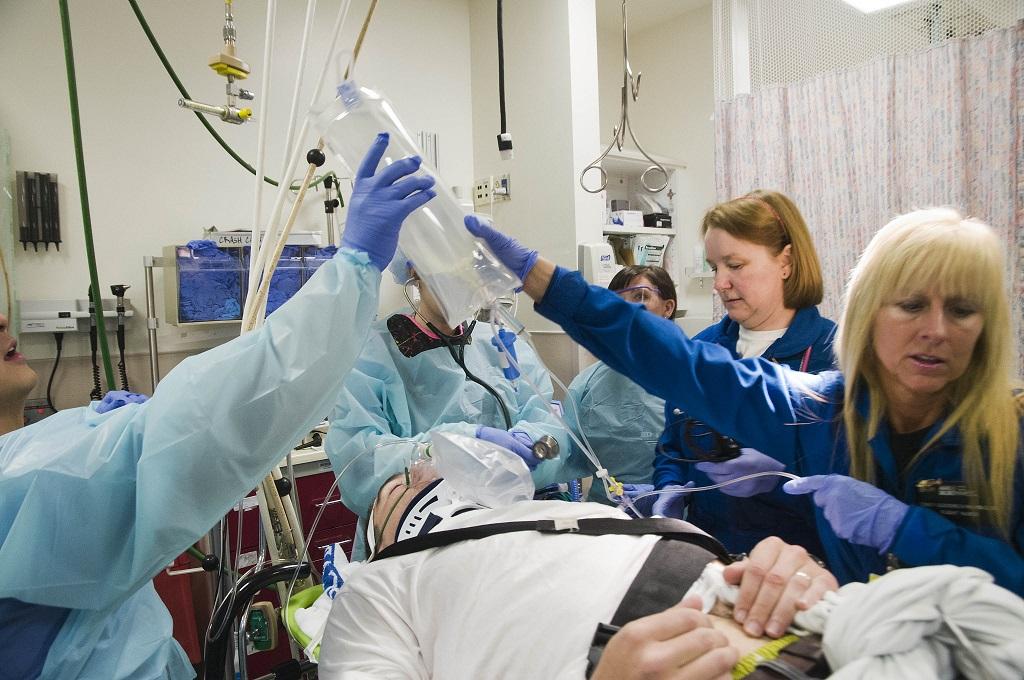
THE COMMON TRAUMATIC FACTORS IN PROFESSIONAL NURSING
Nurses are vital people in any healthcare setting as they are commonly known to offer care to patients in the facilities. Their relationship with people is often very close which can sometimes expose them to some of the trauma and distress experienced by patients. Patients visiting the center might be having physical or mental health issues. Some of the patients might have been affected by abuse, trauma, death and even violence.
A lot of empathy is portrayed by the nurses as they seek to try and alleviate the pain that many of their patients are going through but unfortunately, some nurses get psychological issues from these connections.
Stress is an example of what these nurses go through in their daily routine. It is a body’s way of responding to any kind of demand or threat after sensing the danger that can either be real or imagined. A person’s body defenses kick in a quick process known as fight-or-flight.
Also Read:
Thousands of students get Best specialized Nursing writing services from nursingwritingservices.com. Try yours today risk free.
There are various types of stress. They include Acute stress which is usually short-term and is the most common way to how stress occurs. Episodic Acute Stress is frequently experienced by present frequent triggers and Chronic Stress that is a harmful type of stress which if not managed can have a detrimental effect on the human body for a lengthy period. Some of the triggers may include, unhappy marriages, poverty, etc. many get heart attacks and even strokes while some end up taking their own lives. Nurses also experience trauma which is vicarious and compassion fatigue that is often described as an occupational hazard when engaging with trauma victims. Most of these effects start to show after a month which later impacts the physical and mental health of a nurse. It also alters a person’s character and personal beliefs resulting in drastic changes to the psychology of the nurse. Many of these nurses begin to experience indirect and secondary trauma where a patient’s traumatizing event also affects you. They normally occur unexpectedly and sudden unlike vicarious that occurs over time. Trauma can be harmful in many ways since a nurse relationship with a patient needs to be professional hence relating to a patient by creating a connection with them unconsciously are signs of traumatic countertransference. Humans tend to respond differently to trauma and stress, however, not all people react the same way. Common signs and symptoms include increased allergies, having sleep disorders, high blood pressure, headaches and behaviors such as irritability, emotional volatility, and social withdrawal. Working with people who are either facing death or have passed away has traumatizing effects on many healthcare workers such as nurses who work daily with these patients. Cancer patients for instance experience posttraumatic stress disorder by which studies show that it also affects people who are exposed to the victim. Nurses are often prone to secondary traumatic stress because of their continuous face-to-face contact with patients. Trauma is when a person is flooded with stimulation often intense that he or she cannot control. Individuals react differently in most of these events and are dependent on several factors such as age, one’s development level and the context of the circumstances. Such events have serious psychological implications and if left untreated can develop into PTSD. Many of these nurses’ experience trauma either directly or indirectly. Studies show that there also exists a possibility of experiencing trauma through learning the suffering of another person. Those working in the healthcare industry are known to be stressful, and nurses are frequently in positions that require them to react and respond to the needs of their patients thereby having to deal with emotionally charged situations. Nurses experience burnouts which may influence a person’s relationship as it negatively impacts one’s life. Development of burnouts is common among nurses who work in extreme environments constantly caring for ill patients that is not fruitful. Noticeable burnout symptoms include mental and physical exhaustion and sleep disorders. Providing support to nurses that have many patients to care for will help eliminate and prevent symptoms of secondary traumatic stress.

